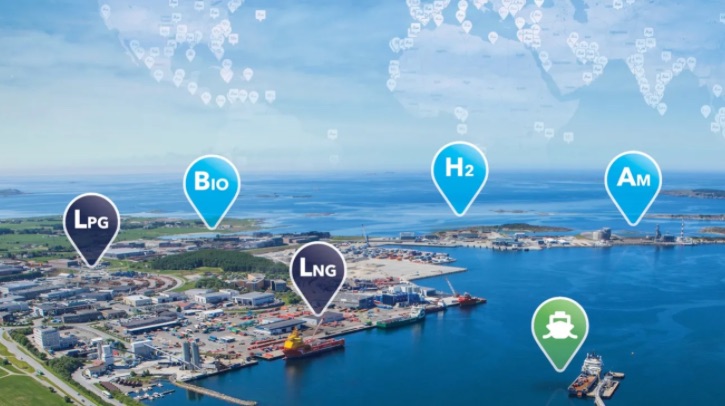According to the latest data from DNV’s Alternative Fuels Insights (AFI) platform, a total of 515 alternative-fuelled vessels were ordered in 2024, representing a 38% year-on-year increase compared to 2023.
LNG
The growth in alternative-fuelled vessel orders has been heavily driven by the container and car carrier new-build boom over the last three years. In 2024, 69% of all container ship orders were for ships capable of being powered by alternative fuels, which was driven by cargo owners responding to consumer demands for more sustainable practices and liner companies preparing to replace older tonnage. The preferred fuel choice for this segment was found to be LNG (67%). In total the container and car carrier segments made up 62% of all alternative fuel orders in 2024.
Knut Ørbeck-Nilssen, CEO Maritime, DNV, said, “As we work towards decarbonizing the industry, we are encouraged by the growth in alternative fuel vessels over the past few years. While recent figures are promising, we must keep pushing forward. The technological transition is underway, but supply of alternative fuel is still low. As an industry we need to work with fuel suppliers and other stakeholders to ensure that shipping has access to its share of alternative fuels in the future. It is also important that the safety of seafarers is ensured as we make this transition. This will require investment in upskilling and training.”
Methanol
LNG was not the only fuel on shipowners’ minds as 2024 saw them betting on multiple alternative fuels. Overall, 166 methanol orders were added (32% of the AFI orderbook), reflecting shipping’s growing interest in a diverse fuel pool as it strives to reduce greenhouse gas emissions. Most of these methanol orders (85) were in the container segment.
While methanol drove new-building orders for alternative-fuelled vessels at the beginning of the year, LNG was the industry’s alternative fuel of choice by year-end. The number of LNG vessel orders placed in 2024 was 264, over double that of 2023 (130).
Ammonia
Ammonia saw promising momentum in the earliest months of the year and continued to grow throughout 2024. A total of 27 orders were placed for ammonia-fueled vessels, compared to just eight for the whole of 2023. The first non-gas carrier ammonia-fuelled vessels orders were placed in 2024 (10), mainly in the bulk carrier segment (5). While still in its early stages, this provides further evidence of ammonia’s emergence in the alternative fuel market.
Deliveries and bunkering
The number of LNG-fuelled ships in operation doubled between 2021 and 2024, with a record number of deliveries (169) in 2024. By the end of 2024, 641 LNG-powered ships were in operation. According to the orderbook, this number is expected to double by the end of the decade.
DNV asserts that while the bunkering infrastructure for some alternative fuels remains underdeveloped, LNG bunkering is maturing. The number of LNG bunker vessels in operation grew from 52 to 64 over the last year, with continued growth expected in 2025. The significant gap between LNG bunkering supply and demand is expected to widen over the next five years based on the orderbook. Addressing this challenge by developing the appropriate infrastructure for alternative fuels – both for vessels and bunkering – can create demand signals to stimulate long-term fuel production. With the EU regulatory package, Fit for 55, setting requirements on a large network of ports to have LNG bunkering infrastructure, it is expected that the availability of LNG in ports will increase.
Jason Stefanatos, global decarbonization director at DNV, commented, “Market conditions, infrastructure development, fuel production updates and cargo owners’ needs are all shaping the demand for different fuels, both in the short and long term. The shifting trends in LNG and methanol orders this year might be due to the slow development of green methanol production. In the long run, green methanol has the potential to be part of the energy mix along with ammonia. In parallel, LNG offers a vital bridging fuel option benefiting from existing infrastructure and short-term emissions reductions while being capable of acting as a long-term solution as well, assuming RNG (renewable natural gas) will be available and provided at a competitive price.”
In related news, DNV recently released a standard that sets requirements and an industry benchmark for the safe design, construction and operation of electrolyzer systems and components. It aims to support the safe and efficient development of the hydrogen industry. Click here to read the full story.



